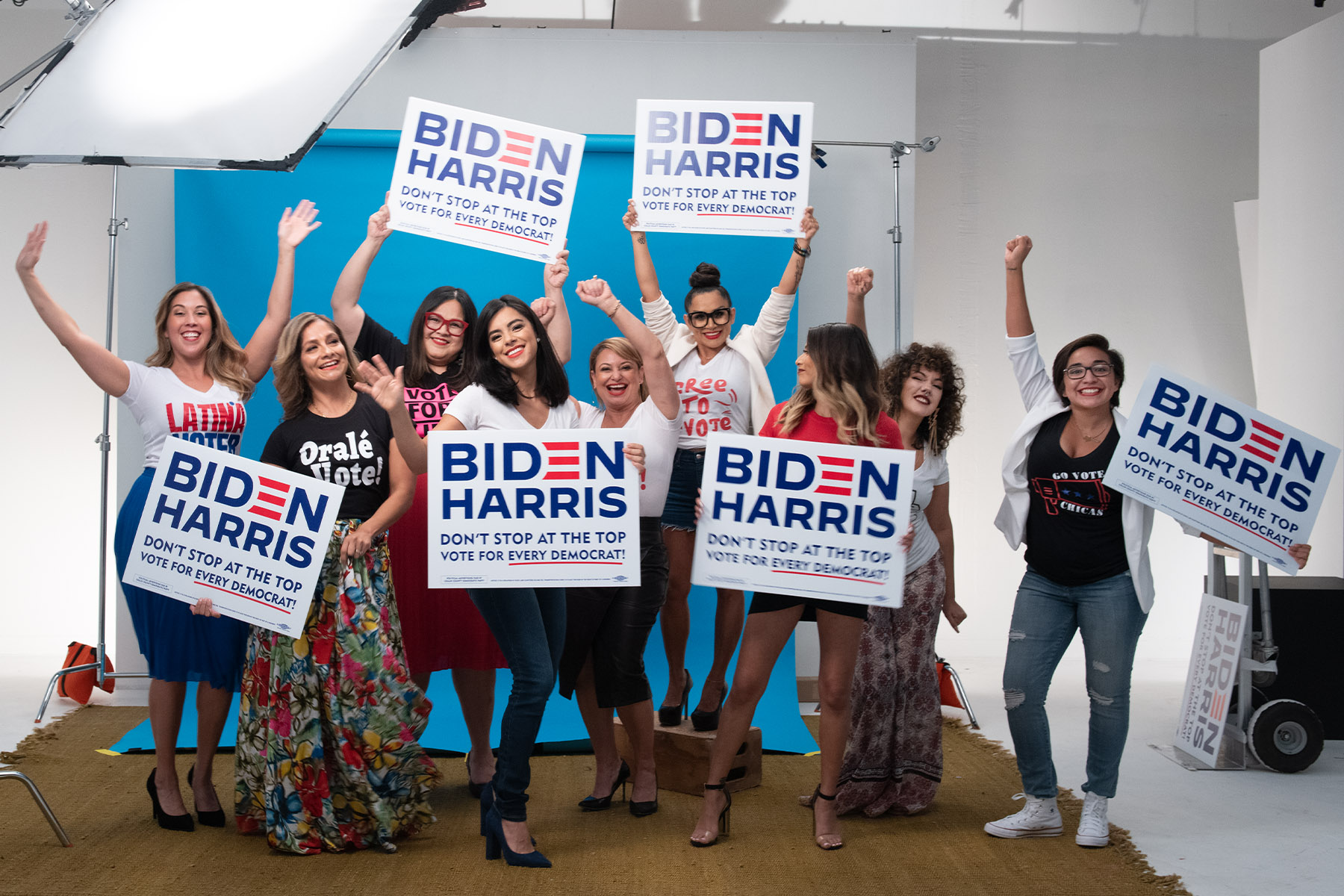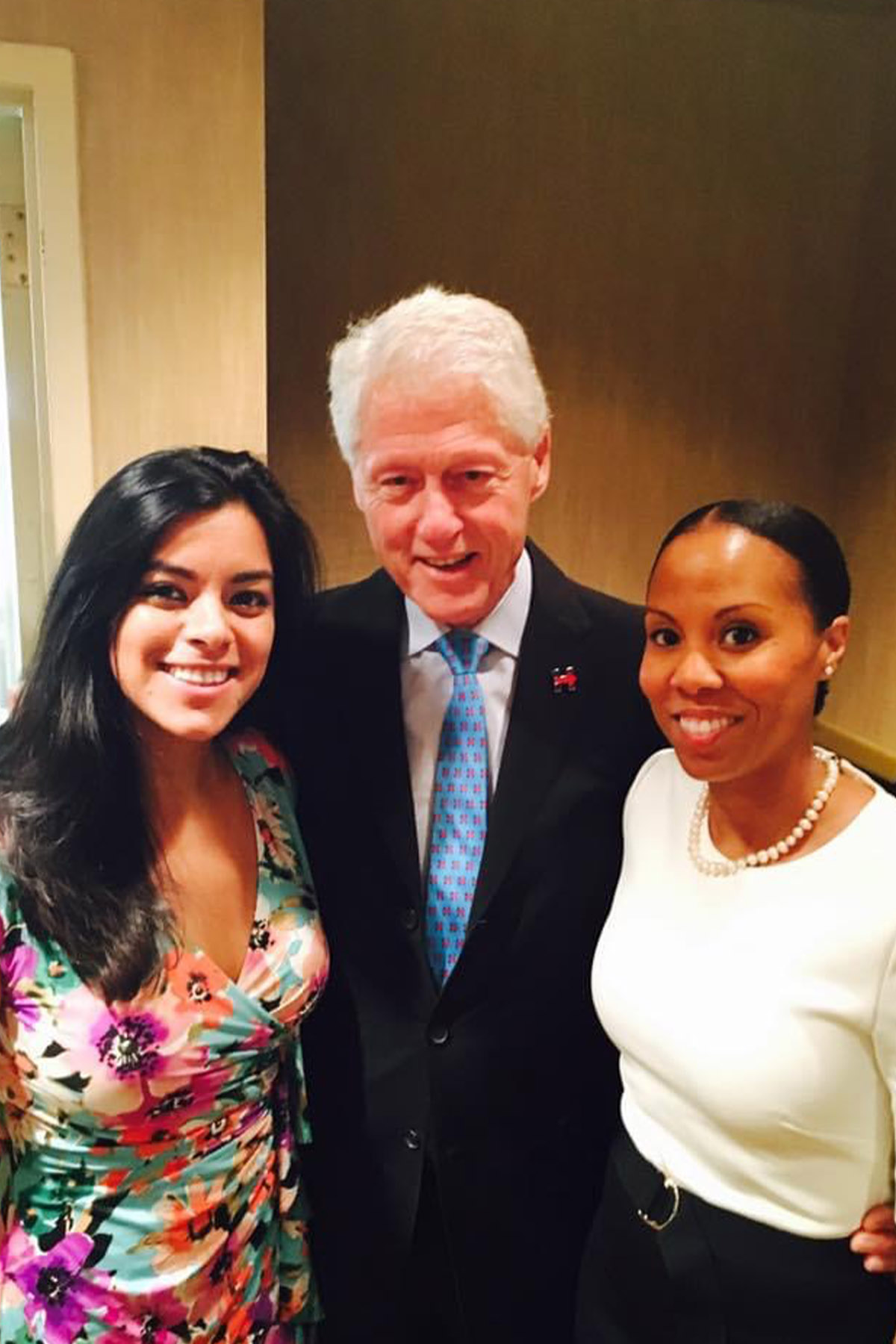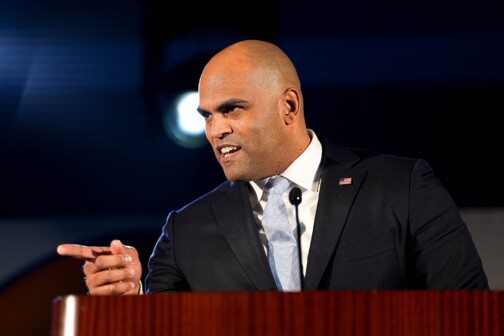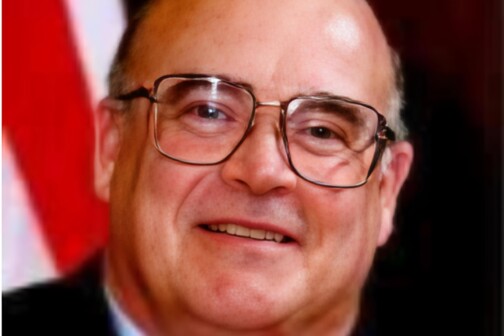The American Dream is not dead. I know, because some form of it exists in this sentence: Rebecca Acuña will vote in her first presidential election on November 3, and she will do so as the state director for Democratic nominee Joe Biden’s campaign in Texas.
It’s exactly what all immigrant parents hope for their children when they come to the United States, and it’s a long way from El Fuerte, Sinaloa, the Mexican city in which she was born. It’s a long way from Laredo, the border town in which she grew up. It’s a long way from wondering if she would be able to go to college, as an undocumented student, or stay once she got there. No, the American Dream is not dead, and Acuña is the proof of what is still possible.
The 36-year-old became a U.S. citizen two years ago, on May 16, 2018, almost three decades after coming to Texas. She registered to vote before doing anything else, her certificate from the U.S. Citizenship and Immigration Services still in hand, and she voted for the first time later that year. “I felt so powerful,” she says. “How is it that some people have the right or privilege to cast a ballot and they don’t?”
When it was announced in early August that Acuña would lead the Biden campaign’s push in Texas—suddenly a battleground state after practically a generation under Republican control—it was mentioned almost as an aside that this would be her first presidential election as a citizen. It might not have been reported at all had the writer, Todd J. Gillman of the Dallas Morning News, not met Acuña when she was communications director for Congressman Pete Gallego in 2013 and followed her rise through the ranks of the Texas Democratic Party. He asked if he could include the detail.
“I wasn’t thinking about it from a ‘me’ optic,” she says. But it’s not just about her, of course. It’s what she represents. Who she represents. As supportive messages from young Latina women poured in following the announcement, her longtime friend State Rep. Victoria Neave had to tell Acuña just how important it was for her to be in that role. “She was like, ‘Yes, Rebecca, you don’t understand what this is going to do to young people, to volunteers, to staff.’ That’s been eye-opening.”
“Seeing Rebecca there leading the statewide campaign, I think it’s so inspiring,” Neave says, “because we want our next generation to be able to see her, to see me, to see Kamala [Harris] in the White House and know that they can do it, too.”
If it had belonged to anyone else, it’s the sort of narrative that Acuña normally would know how to leverage. Telling stories like these is her specialty, the reason why the Biden campaign has called her a “go-to talent for Democrats.” It’s a skill she honed while working behind the scenes of Texas politics for more than a decade, including serving as chief of staff for two state reps (including Neave: “My favorite session,” she says) and as press secretary for Wendy Davis’ gubernatorial campaign in 2014. Gallego compares her to C.J. Cregg from The West Wing, the press secretary who rose to become the president’s chief of staff. When the Biden campaign tapped her as state director, she was working as director of government affairs for PepsiCo, a job she has held since 2017.
“She is a guru when it comes to media relations and recognizes every single thing has a story to it,” says Miguel Solis, who worked with Acuña at the Latino Center for Leadership Development in Dallas, where she was executive director. “And she has the ability to take actions and turn them into compelling narratives for the press, which is huge, and it’s not easy to do. A lot of political operators are scared of the press. She recognizes the impact they have in the world of politics.”
That’s why the party wanted her to lead Biden’s operation in Texas, which it believes it has a real chance of winning. As of September 1, according to FiveThirtyEight, the candidate was trailing the president by 1 percent in Texas. The campaign has spent accordingly, funding 57 positions in Acuña’s organization. “I’ve never heard of such a thing,” says one party insider.
The most crucial hire was Acuña. She admits she looks younger (Mexican newspapers have reported she’s 30) and taller (“I’m always wearing heels”) than she actually is. But even flat-footed she carries herself with the kind of quiet assurance that takes up space, the bearing of someone familiar with being underestimated but still getting what she wants. Her wardrobe—she wears only dresses—gives the impression that she’s always on the clock. (Though she had to put on both items for a photo shoot for this story, she says she rarely wears jeans and swears she doesn’t own a single t-shirt.) But even in heels and a dress, Acuña is more than willing to carry the photographer’s sandbags from one setup to another, through a muddy, overgrown field off a highway frontage road. Whatever it takes for the story.
That’s what Biden needs in Texas: someone who will do anything necessary to get the message out. During the worst pandemic in more than a century, messaging is more important than ever. Setting up events, knocking on doors, all the usual get-out-the-vote, foot-soldier-type activities are almost nonexistent. They need someone who can communicate, and it’s even better if that someone can do it in Spanish, and it’s best of all if that Spanish has a Mexican accent. To reach enough low- and medium-propensity voters to flip the state, they need someone who is bilingual and bicultural, who can distill the messaging in two languages. They can’t just use Google Translate and hope for the best. For this, Acuña is uniquely suited.
“There is a great deal of nuance required,” says State Rep. Rafael Anchia, Acuña’s partner for the last few years. (They live together in North Oak Cliff. One of Anchia’s daughters, he says, calls Acuña “Dad.”) “I mean, I think having a bilingual, Puerto Rican comms person is good, or a Cuban comms person is good, but who better to communicate with the Mexican American community that predominates Texas, right? If you take that subset of Hispanics, that is Texas Hispanics—they’re not Cuban or Puerto Rican or Peruvian. They’re Mexican, and Mexican American. And many of whom are newly naturalized citizens, like she is.”
In other words: Acuña isn’t just the face of the Biden campaign in Texas. She’s a reflection of Texas in general.
Acuña understands, as much as anyone, that government impacts everyone. She has been involved in politics in one way or another since college. But her life, like those of all immigrants, was implicitly political as soon as she crossed the border.
She was born in Sinaloa, near the Pacific coast of Mexico. “Very close to where they caught El Chapo,” she says. The Acuñas—Rebecca, her younger sister Jazmin, and their parents, Norma and Gonzalo—moved to McAllen when she was 6 years old and spent the next six years moving back and forth along the border, from McAllen to Laredo, before settling for good in Laredo. Norma waited tables at a Denny’s and later worked as a cashier at Home Depot. Gonzalo managed a Mexican restaurant.
“What people don’t understand, who’ve never been there, is the lack of diversity, in that everyone is Hispanic,” Acuña says. She says she never heard the word “Latino” in South Texas. “I grew up in the majority. I didn’t even really think about a concept of race or ethnicity until I moved to Austin. I never had to.”
She didn’t think much about being a noncitizen, either. “Because I was in a place where everybody from the CEOs to the professors to the elected officials to the waitstaff and janitors, everyone was Hispanic. You hear stories about people living with this fear—that wasn’t my situation.”
Acuña finally had to confront her status before her junior year at United High School, where she was “one of our student leaders and very popular with her classmates,” says her guidance counselor Carmen Castillo. She wanted to take some college courses and realized, being undocumented, she couldn’t. The next summer, though, while her status didn’t change, her situation did. Gov. Rick Perry signed into law HB 1403, better known as the Noriega Bill (after its author, State Rep. Rick Noriega), and even better than that as the Texas DREAM Act. It called for undocumented students who met certain criteria to receive in-state tuition. (They had previously been classified as international students, making it much more expensive.)
“My mom walks into my room and says, ‘Rebecca, you can go to college. I saw it on the news. I saw it on Univision. They passed some law.’ They passed some law—that was it. I had now very quickly seen the connection between ‘they passed some law’ and ‘the rest of my life is never going to be the same.’ That was my first little, like, politics matters. Politics affects you.”
The law was so new that no one knew how to handle the application process, and Acuña was trying to figure it out on her own. “I didn’t talk about it with anyone,” she says. “My friends didn’t know.”
Initially, the University of Texas rejected her, even though she was in the top 10 percent of her class, which, by law, should have guaranteed her automatic admission. She received a letter saying that she was missing some of the application materials—tests of English as a foreign language, Mexican high school transcripts—things she didn’t have and didn’t think she needed. Still, she was resigned to her fate, a fitting end to a chaotic senior year that began with the 9/11 attacks and included the unexpected death of one of the senior English teachers. But her mother saw the letter and wouldn’t accept it. She took it to Castillo, who made some calls and sorted it out. “Changed my life,” Acuña says.
(“Rebecca credits me for getting her in, but she was admitted on her own merits,” Castillo says. “I helped open a door that was unknown to her and unfortunately unknown to many students today.”)
During her freshman year at UT, Acuña says, she “was in purely survival mode.” By the time she arrived on campus, there were already discussions in the Legislature about repealing the DREAM Act. She wasn’t even sure if she would be able to come back for another semester. She remembers a negative piece that ran on the front page of the Daily Texan, the UT student newspaper. It was about students like her; there weren’t many, maybe 20 or so. The writer wondered why they got to pay in-state tuition. “But what I got out of it was, ‘Oh, there are other people. I’m not the only one.’ ”
There were others, like Andres Correa, now a partner at Lynn Pinker Hurst & Schwegmann, who later joined Acuña in the LCLD. These nascent dreamers found each other and started meeting, comparing notes about the obstacles they faced, and took that shared knowledge to conferences to talk to students about how to apply for college if they were non-citizens. She got involved with UT’s LULAC chapter, whose president was Mary Gonzalez, now a state representative out of El Paso. She met Neave, the president of her LULAC chapter at UT Dallas, at a conference. The legislators kept talking about repealing, so Acuña and others began testifying at the Capitol. That eventually led to advocacy on the federal level as well. “I just connected all the dots and became full-blown very involved,” she says.
After graduation, Acuña couldn’t do much more than that, at least not officially. She had a college degree but not permanent residency yet. She was still undocumented until the fall of 2008, a few months before her 25th birthday. “It’s probably why I was so engaged on the organizing side. It was a way to pick up organizing and communication skills without being able to work.”
The next year, she got a chance to put those skills into practice, landing a job with State Rep. Garnet Coleman from Houston, who has been in the Texas Lege since 1991, after seeing an online job posting. It was the perfect place for her to start: Coleman refers to his office as “a teaching office, it’s like a teaching hospital,” and though he’s tough on his staff, it’s in service of better preparing them for a career in government.
“What I wanted to make sure is that she, and other staff members, were put in front of other electives but also trained in general political activity,” Coleman says, “because we all know, when we’re serving in the Legislature, that you have to be good at the community, you have to be good at the political world, and you have to be good at the policy. And that’s where Rebecca’s other talents came in, in that she’s very driven about the policy that affects people in this state and in this country.”
When she joined Coleman’s staff, the Legislature was at near parity, with 74 Democrats and 76 Republicans. But after the 2010 elections, the numbers changed to 48 Democrats and 102 Republicans. It was a disaster for the party but an education for Acuña. “How do you operate in an environment like this that is this heavily Republican?” she says. “Who do you need as a co-author? What kind of messaging?”
She left to go work for the Texas Democratic Party in 2011 after having an aha moment while watching a prominent Democrat talking on a national newscast about women’s issues. “I said, ‘Yes, I love this, but why do they never talk about Latino issues?’ And then I said: ‘Why am I complaining? I am a Democrat. I am in a political office. Why don’t I do it?’ This whole notion of complaining and saying they don’t when you can. I was just like, ‘I can do it. That can be me.’ ”
It’s a moment that has driven everything since: you can. It has brought her to where she is now.
Acuña says she will never forget what Wendy Davis said on the night she lost her bid to become governor of Texas in 2014. As Davis’ press secretary, she was the first Latina to hold such a position in a gubernatorial race in the state. It had been a bruising campaign and it led to a lopsided loss—Davis won just 19 counties out of 254—but the candidate ended her concession speech on a hopeful note, invoking the words of Jacob Riis, a journalist and activist in turn-of-the-century New York:
“When nothing seems to help, I go and look at a stonecutter, hammering away at his rock. Perhaps 100 times without a crack showing in it. Yet at the 101st blow, it will split in two. I know that it was not that blow that did it, but all that had gone before.”
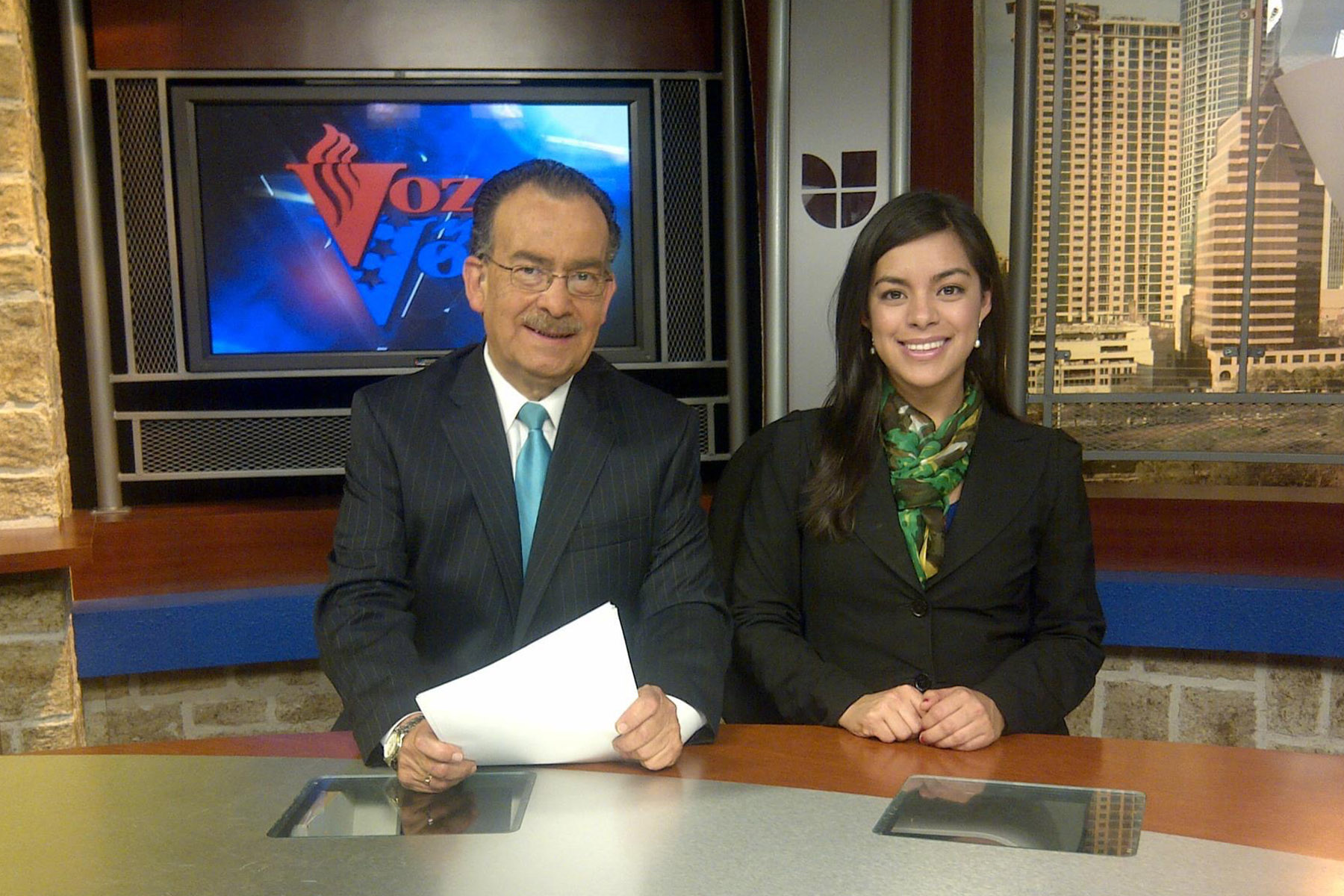
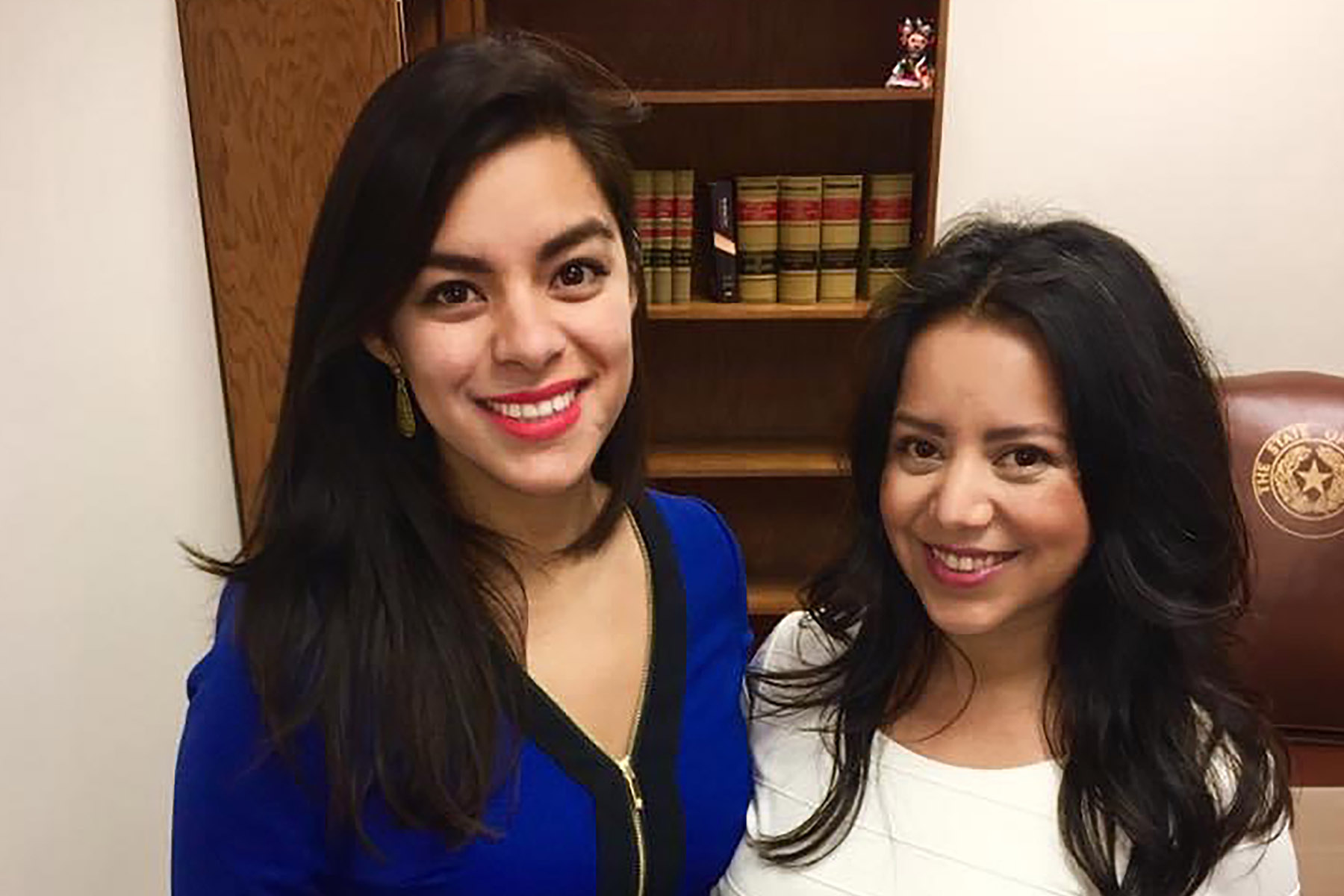
Acuña brings this up when I ask why she took a leave of absence from her job as director of government affairs for PepsiCo to lead Biden’s Texas campaign. It’s a great opportunity, but still: the state hasn’t supported a Democrat for president since Jimmy Carter in 1976. The celebrated and well-funded candidacies of Davis and Beto O’Rourke (for Senate, in 2018) ended in defeat. Why should this time be any different?
“Maybe this is the 101st blow,” she says.
It isn’t just blind optimism. O’Rourke’s attempt to unseat Ted Cruz resulted in the closest race for statewide office in Texas in 40 years—Cruz, a heavy favorite, squeaked out a victory by less than 3 percentage points—and his massive draw at the ballot box helped Democrats secure more than a dozen seats in the Texas Lege and two more in the U.S. House. O’Rourke’s narrow loss built on the work of Davis’ campaign. Her staff identified new voters and donors, engaged new volunteers, did the necessary grunt work to build out the party.
“She inspired a new generation of people who are now doing other things partly because of that experience,” Acuña says. She remembers working with a lawyer and former professional football player named Colin Allred. “Now he’s a member of Congress who was part of the [Democratic National Convention] keynote. Maybe he wouldn’t have been there if he had not been part of this 2014 race.”
Acuña was on a beach in Miami when she got the call asking her to be Biden’s state director in Texas. She had gone with Anchia to visit his father, who is in his mid-80s. Anchia’s sister called to say he wasn’t doing well, and since everyone is working remotely, they decided to go, quarantine for a couple of weeks, and spend some time with him. She ended up in a cinematic location for a cinematic moment. It was an easy decision.
“When the hell else am I going to have the opportunity to do something like this in my state?” she says.
But Acuña admits she might not have taken the job if it hadn’t happened in a time when a global pandemic was forcing everyone to stay home as much as possible. Prior to everything shutting down, she was on the road for PepsiCo 85 percent of the time, but campaign travel is different. She didn’t necessarily want to go back to the life she had left behind with Davis, where even if she managed to show up at family events, she wasn’t really there, lost in her phone and an ever-replenishing inbox. She says that, just this month, she got back to the weight she was at before joining Gallego’s congressional race in 2012. (Part of it is pandemic-related: no events means less wine at night.) And she still carries a scar from campaigning, quite literally: a line runs from the left corner of her mouth to the outside edge of her chin. She was attacked by a pit bull at the home of a friend her first night in San Antonio, where the campaign was headquartered. Now she has a permanent reminder of how politics affects her when she looks in the mirror.
So the truth is, I’m wrong. The idea that she will vote in her first presidential election while running the Texas campaign for Biden doesn’t prove the American Dream is still alive. The truth is, she already achieved it years ago, even before she was sworn in as a U.S. citizen, when she got the job with PepsiCo.
When the campaign is over, after she votes in her first presidential election, she will go back to it, continuing her work as an activist—her first assignment at PepsiCo was opposing the Texas bathroom bill—but with the weight of a Fortune 50 company behind her. At least that is the plan. She says she doesn’t like to think in hypotheticals. No matter what, though, the choice will be hers. She will get to do whatever she wants. And there is nothing more American than that.
This story originally ran in the October issue of D Magazine with the headline Trump’s Worst Nightmare.
Author






